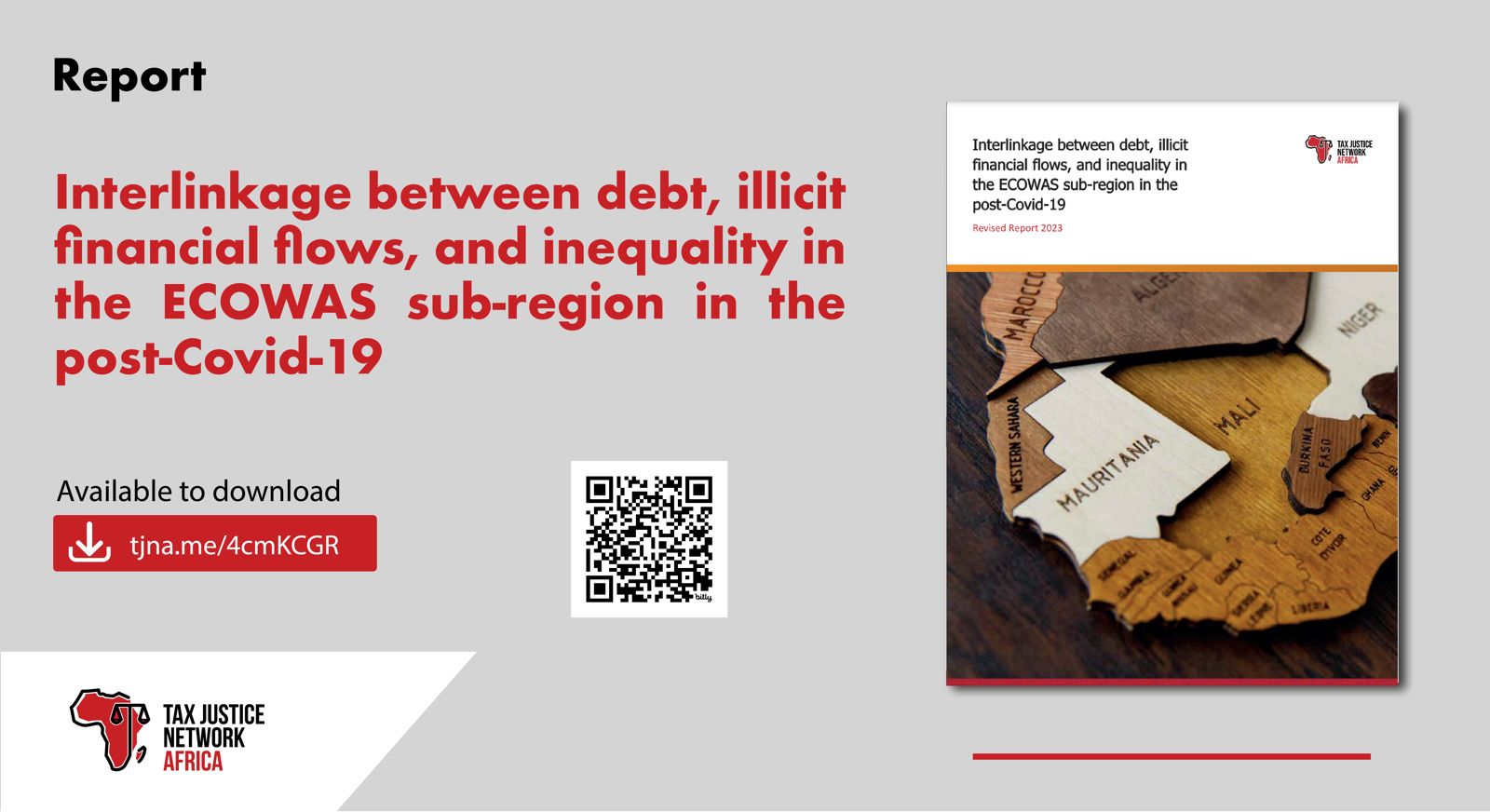Date

The Economic Community of West African States (ECOWAS) countries continue to exhibit elevated levels of inequalities among their populations due to unaddressed illicit financial flows and debt challenges. This is according to a report by Tax Justice Network Africa (TJNA) that captures the levels of income inequality within the countries and calls for deliberate steps to be taken to ensure just, fair, equitable, and progressive tax regimes in the region.
The report titled ‘Interlinkages between debt, illicit financial flows and Inequality in the ECOWAS sub-region in the post Covid-19 era’ examines the magnitude of illicit financial flows, updating estimates from 1980 to 2020, and examines the current trends in debt accumulation and inequality in West Africa. It proposes a holistic framework for policy intervention by establishing the interconnectedness between illicit financial flows, debt, and inequality.
According to the report, many countries in the ECOWAS sub-region are facing debt distress situations or are at elevated risk of debt distress due to rising expenditures and developmental challenges such as inequality. As such, Many African countries are still struggling to collect tax matching the size of their economy resulting in debt traps, rising of expenditures and development hurdles.
West Africa, particularly, entered the pandemic with limited fiscal space due to excessive revenue leakages otherwise known as illicit financial flows. Civil society organisations are concerned that there is not much hope for greater optimism of post-pandemic inclusive and sustainable recovery given that so many resources leave West Africa by way of illicit financial flows resulting in higher borrowing and associated servicing cost.
According to UNODC, 2011, every year, an estimated $50 billion is lost to illicit financial flows in Africa, with impacts on economic variables like official development assistance and external debt. When Covid-19 broke out, the pandemic emphasised the need to examine the connections between illicit financial flows, debt, and inequality in West Africa. The pandemic severely impacted global, regional, and local economies, disproportionately affecting households and threatened progress in poverty reduction.
The International Monetary Fund (IMF) (2020) states that the Sub-Saharan African countries need large-scale external financing, additionally, World Bank estimate that the region faces a government financing gap of at least 114 billion in 2020 and a financing gap of $290bn between 2020 and 2023.
The initial expenses incurred by these countries in response to the pandemic are already leading to fiscal unsustainability. As the funding gap continues to widen, the presence of illicit financial flows intensifies the situation for these countries. The vulnerability of West Africa at the start of the pandemic, surrounding economic, health, and social aspects, may partly stem from excessive illicit financial flows surpassing their revenue capacity.
The report states that Ghana and Nigeria have significant tax gaps (USD 7 billion for Ghana and USD 74 billion for Nigeria), and that from the descriptive statistics on illicit financial flows and other leakages, West Africa will continue to struggle to finance the much-needed development that the citizens expect if the status quo is maintained.
In its recommendations, the report highlights the need to design of a comprehensive fiscal policy in the ECOWAS sub-region and greater collaboration between citizens, academia, and civil society organisations to foster domestic resource mobilisation to tackle illicit financial flows. The report additionally notes that the resulting designed fiscal space must be allocated prudently and efficiently in areas with higher inequality-reducing effects such as agriculture (food and nutrition security also), education, health, and social protection to foster inclusive development.
The report also recommends that customs harmonisation, greater disclosure, and information facilitated by ECOWAS must be prioritised to curb trade mis-invoicing among member countries. As Individual member countries are powerless, ECOWAS must be empowered to handle such development with clear timelines and be supported by the media, academia, and civil society organisations as well as other continental regional bodies.
Lastly, the report calls upon governments to work together to fight tax evasion and tax avoidance, including illicit financial flows across the sub-region, to foster development.
To access the full report, please visit https://tjna.me/4cmKCGR
For more details on our work on debt please contact izulu [@] taxjusticeafrica.net.